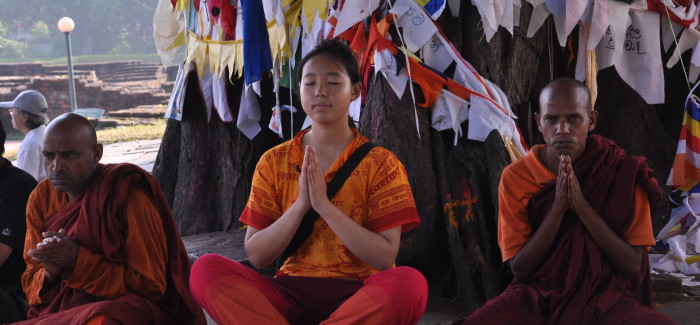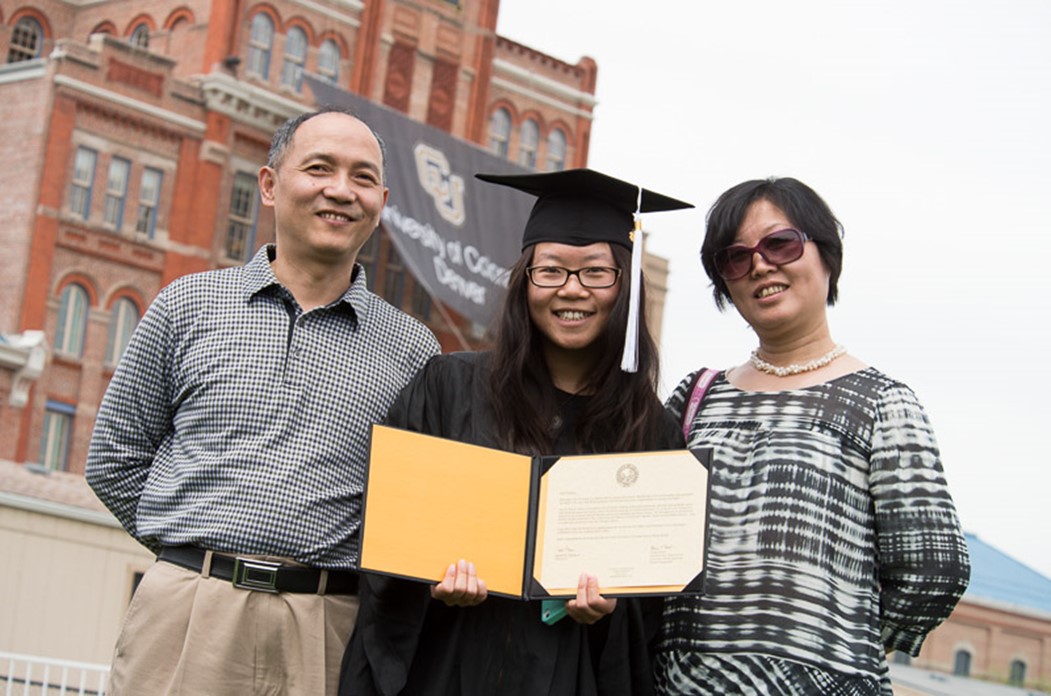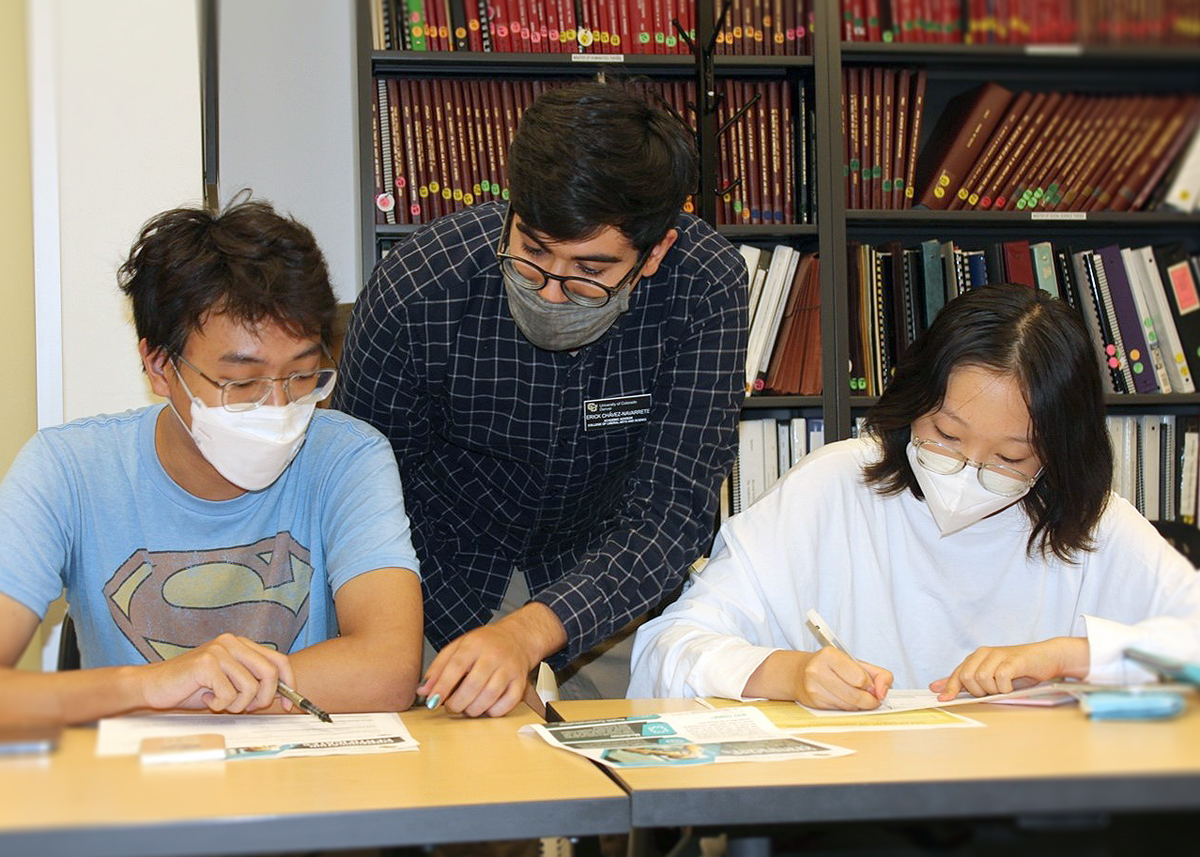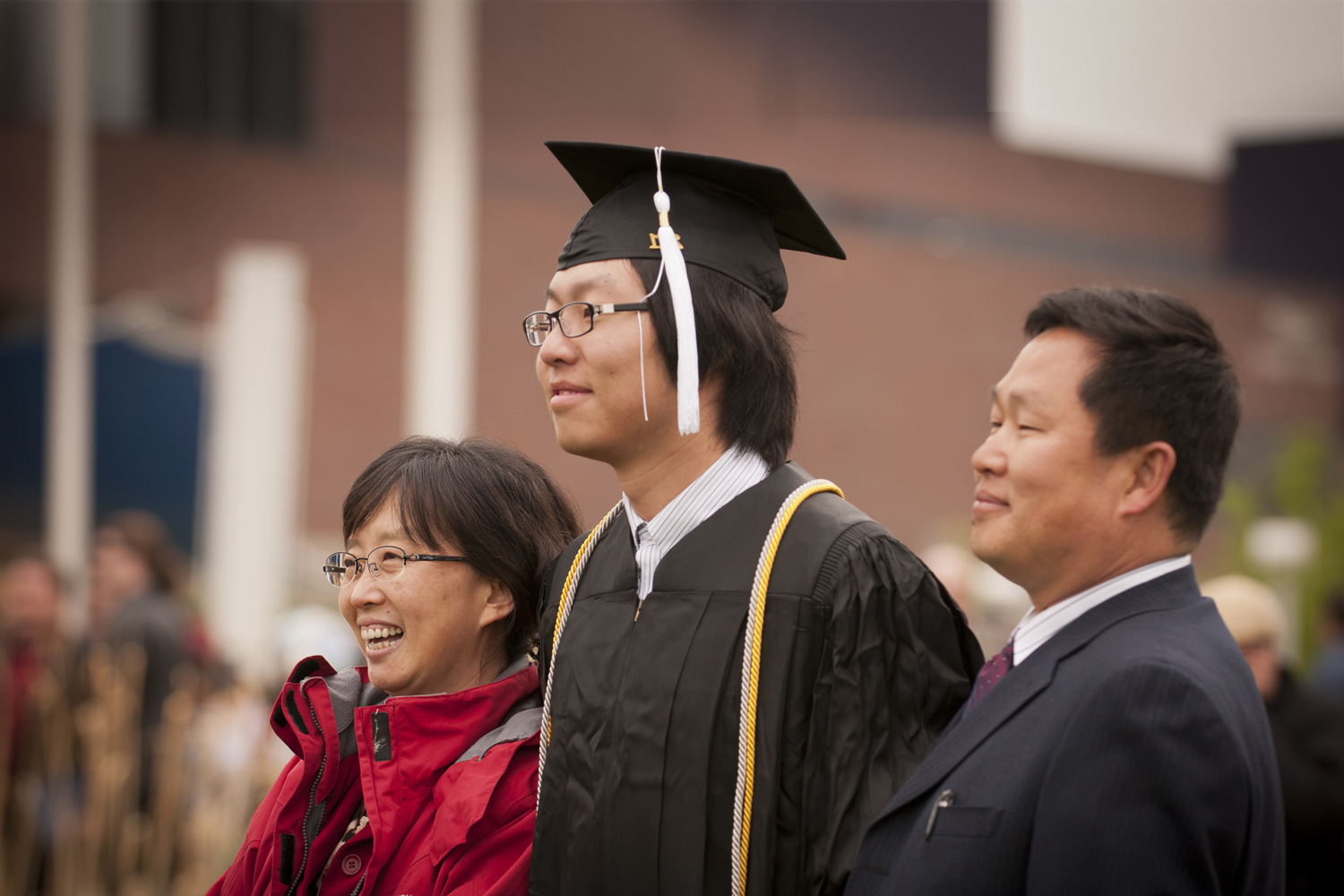Monk Business in Nepal

by Wanyi Yang
Tibetans on pilgrimage to the Potala Palace with kowtow for every step A Cambridge University professor at large. An Australian volunteer from a special club. These are just a few of the images I bring back from my travel through 18 provinces, 67 cities, and 121 villages in Tibet and Nepal over the past five months.
The world is unimaginable, colorful, and with great meaning. Especially at Matepani Gumba, a temple at the top of a mountain in Pokhara, Nepal, where I served as volunteer for one month.
Behind the temple lies a big forest with a spring that supplies the temple with drinking water.
If it seems like this temple is separated from the outside world, it is. With no electricity, you use candles at night. And if you want to use the internet, you have to take an hour walk down the mountain. But half of the time you can’t use it due to power outages.
At the temple I taught English to monks who were from 4 to 22 years old. I knew little Nepalese and they knew little English. So I spoke to them in English, and they responded in a mix of Nepalese and English. That’s how we communicated. Sounds ineffective? It was.
In the beginning, I loved the place. It was quiet. I shared their vegetarian diet. And I joined with them in their religious and meditation activities. My lifestyle here was pretty healthy. What’s more, since I’m really interested in Tibetan religious philosophy, it was a good chance for me to learn from the high Lama.
My attitude began to change gradually from the third day on. First, it was hard to communicate with them, especially with the young monks. Second, the monks’ English skills varied widely, so I didn’t know how to prepare classes to meet their different needs at the same time. But the most important thing was that we shared totally different visions of reality. For example, they thought Nepalese was the most widely spoken language in the world.
Facing these challenges, I changed my strategy. Helping them learn more about the outside world was now my first goal; improving their English, was now my second one. This way, each and every monk could learn something from me regardless of their English skills. To make sure we were on the same page, I chose simple words and used simple sentences, reminded them that English is the main language in the world, talked about different communication habits, showed them the world map, and so on. In addition, as the first Chinese volunteer in the temple, I opened a Chinese class for high Lama. Surprisingly, in the following days, lots of monks said “Hi” to me in Chinese, which added a lot of laughs to my silent life.
From the third week on, I was the lone volunteer, as my two other Austrian colleagues had left. And had fewer classes to teach, due to the monks’ special religious activities. So I felt a little lonely. Our meals hadn’t changed at all for two weeks. But I forced myself to enjoy the food. What’s more, I was afraid of the dark. On top of all that, my new teaching strategy didn’t work as well as I’d thought it would. I wanted to help but didn’t know where to start. So I read alone and wrote a lot just to let time pass by faster.
My third week was the most meaningful. When I read and meditated a lot without interruption. I read a story about happiness, which changed my attitude toward my students. It said that people seek knowledge, money, and power because they’re supposed to bring happiness. But, I thought, if we can be happy without seeking these things, why do we pursue them? If I had been born in Africa, I’d probably love elephants. If I were a monk, I’d probably realize that my life’s calling is to pray every day. Maybe I shouldn’t seek to change these monks’ attitudes toward the world. But I should listen and respect them, instead.
In my final week, I thought of myself more as a friend and not an instructor. I stopped teaching them specific knowledge. We shared happiness, sorrows, and misunderstandings with each other. As a result, their class participation increased dramatically. And we built a deeper relationship between us.
The day I left, they prepared me “哈达” (Hada) by placing a religious scarf on me to symbolize their good wishes. Even though I’d laugh when they kept asking me when I’d come back, I really wanted to cry because I knew we might not ever see each other again. And I remembered then how they’d leave me their best food and snacks after religious services; our chats at night with no lights; the dance they presented to me; and our laughing together. These are the most precious memories of my life.
In the end, I don’t think their English skills improved a lot. And even though they can speak some Chinese, I don’t think I really made much of a difference in their lives. Instead, I just showed them one way to live. In exchange, they showed me another.
Now I know that some people make a living by praying. And they know some people like me who pursue success and enjoy life’s pleasures. We helped each other to better understand our world. That may be enough. Even though I’ll never live their ways; even though I don’t agree with their lifestyle and ways to understand life; I respect them. And I believe it’s the same for them.
People grow up in different ways, share different stories, profess different religions, speak different languages… But we all have our unique ways of living to give life meaning. That’s what I learned as a volunteer in Nepal.
By the way, I am not afraid of the dark, anymore. And have a stronger heart to face the unknown.
UPDATES
International College Beijing
-

ICB Graduate Fellowship Provides Support
Oct 4, 2021The scholarship, which was launched eight years ago, provides $5,000 annually to an outstanding ICB student who chooses to pursue graduate studies at the University of Colorado Denver. A wide range of graduate programs are available, including applied mathematics, accounting, finance, risk management, public affairs, communications, economics, business, biostatistics, clinical science, and many other degree programs.Full story -

Personalized Attention
Sep 21, 2021Questions were answered, academic guidance was provided, and helpful facts were shared as CU Denver faculty and advisors met with ICB students who had recently arrived in Denver. The students gained a better understanding of certificate program options such as health communication and mediation. They also found out more about communication pathways , including global and intercultural communication.Full story





